
Synopsis:
The World Bank-administered Multi-Donor Trust Fund (MDTF), which became operational on August 5, 2012, provides a coordinated financing mechanism for sector and investment projects and programs of the Government of Pakistan that support reconstruction and rehabilitation in the conflict-affected areas of Khyber Pakhtunkhwa(KP), Federal Administered Tribal Areas (FATA) and Baluchistan. With a portfolio of US $ 950 Million invested on over 1000 interventions in most remote and rugged regions of Pakistan.
The overall purpose of this assignment is to strengthen the World Bank’s technical supervision of the MDTF investment portfolio, by ensuring year-round access to project sites across KPK and FATA and provide timely, relevant and verifiable information on the progress of various activities under the selected projects to the World Bank and other stakeholders including the government and other donors.
The work involves on-site monitoring of physical progress, quality of construction and usage of physical investments for the selected projects supported by the MDTF, and reporting and provision of support to implementing entities to manage development aid for better results.
Third Party Monitoring Agent activities for five MDTF funded projects; namely:
1. Economic Revitalization of Khyber Pukhtunkhwa & FATA Project (ERKF);
2. Rural Livelihood & Community Infrastructure Project (RLCIP);
3. Rural Livelihood & Community Infrastructure Project (RLCIP);
4. KPK Southern Area Development Project (SADP);
5. FATA Emergency Rural Roads Project (ERRP)
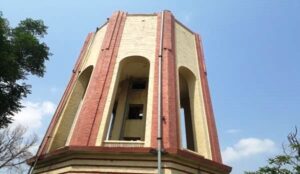











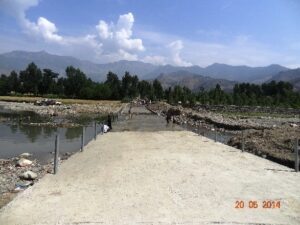
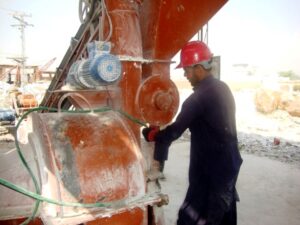
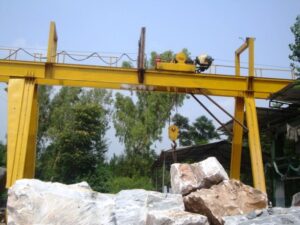
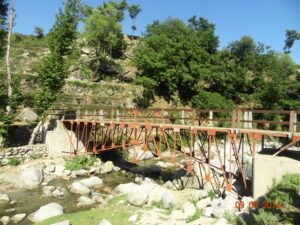
Rural Livelihood & Community Infrastructure Project (RLCIP)
The project development objective was to improve livelihoods and access to basic service infrastructure in selected Agencies in FATA.
The firm carried out on-site project management and assisted the World Bank to supervise works and ensure that they are carried out in line with the terms of legal agreements made with the Government. The objectives of the assignment included;
Social Components
- Women and children development;
- Health and Hygiene;
- Environment;
- Community Development;
- Capacity building.
Physical Infrastructure
- Access Roads;
- Water supply;
- Drainage System;
- Street Payments;
- Productive infrastructure ;
- Irrigation system ;
- Micro-Hydro schemes.
KPK Southern Area Development Project (SADP)
The recovery and rehabilitation needs in the Khyber Pakhtunkhwa (KP) province as a result of the militancy crisis. It supported the Government of KP respond to the crisis in affected areas by financing investments for community development activities, basic services and small-scale productive infrastructure.
The grant mechanism was based on four pillars: (1) Restoring Damaged Infrastructure and Disrupted Services; (2) Improving Local and Provincial Service Delivery; (3) Supporting Livelihoods and Creating Job Opportunities; and (4) Capacity Building and Institutional Strengthening.
The assignment included monitoring and evaluation of the following;
- Community Development works;
- Social Infrastructure work include road, street payments, water supply and Drainage & Micro-hydro schemes;
- Productive Infrastructure include, community grain storage facilities, community agro-processing facilities, cattle trough, small to medium irrigation schemes, resting points (along stock trading routes), livestock water pools,
- Project management/Planning.
Economic Revitalization of Khyber Pukhtunkhwa & FATA Project (ERKF)
The Multi Donor Trust Fund (MDTF) project ‘Economic Revitalization of Khyber Pakhtunkhwa and Federally Administered Tribal Areas (FATA)’ is a joint initiative for both Khyber Pakhtunkhwa and FATA to provide support to the Small and Medium Enterprises (SMEs), attract Diaspora investment, and strengthen institutional capacities to foster investment and implement regulatory reforms. The project is a response to the priority interventions identified under the donor-supported Post Crisis Needs Assessment (PCNA) Report. The MDTF for Khyber Pakhtunkhwa, FATA and Balochistan was established to support the recommendations made in the PCNA report, and is being administered by the World Bank on behalf of 10 donors.
The Project was divided in three components:
- Component 1: SME Development
- Component 2: Investment Mobilization
- Component 3: Capacity Building to Foster Investment and Implement Reforms
The firm as Third-Party Validation (TPV) conducted social, technical, financial and institutional aspects of the completed works on ground and processes. The project was a success as it provides transparency, effectiveness and adherence to various standards.
The scope of work for TPMA mainly includes the following components:
- Assets Verification;
- Assessment of damages/ losses;
- Purpose of the grant provided;
- Physical verification/ existence of assets;
- Quality Assessment;
- Assessment of quality of the assets provided/ financed under MDTF funding;
- Sustainability of assets purchased;
- Safety and durability of the assets;
- Quality of the construction material;
- Quality of constructed buildings;
- Quality of the machines purchased.
FATA Urban Centers Project (FUCP)
The project supported: a) delivery of priority rehabilitation, reconstruction, expansion, and upgrading of urban municipal infrastructure and services including water supply sanitation, solid waste management, streetlights, drains, roads, firefighting, micro-hydro schemes and a general bus terminal for the existing population of a pilot centre Khar, in Bajaur Agency; b) design and development of the overall framework for TARUCCI; and c) strengthening the capacities of the Project Management Unit (PMU) in the FATA Secretariat for project implementation and oversight, and the Directorate of Local Government and Rural Development (LG&RD) for Sustainable operation and maintenance of project-financed infrastructure and services.
The work involves on-site monitoring of physical progress, quality of construction and usage of physical investments for the selected projects supported by the MDTF, and reporting and provision of support to implementing entities to manage development aid for better results.
The firm carried out on-site project management and assisted the World Bank to supervise works and ensure that they are carried out in line with the terms of legal agreements made with the Government. The objectives of the assignment included verification and monitoring of Physical infrastructure given below;
- Street Lights;
- Water supply;
- Drainage System;
- Street Payments;
- Micro-Hydro schemes.




